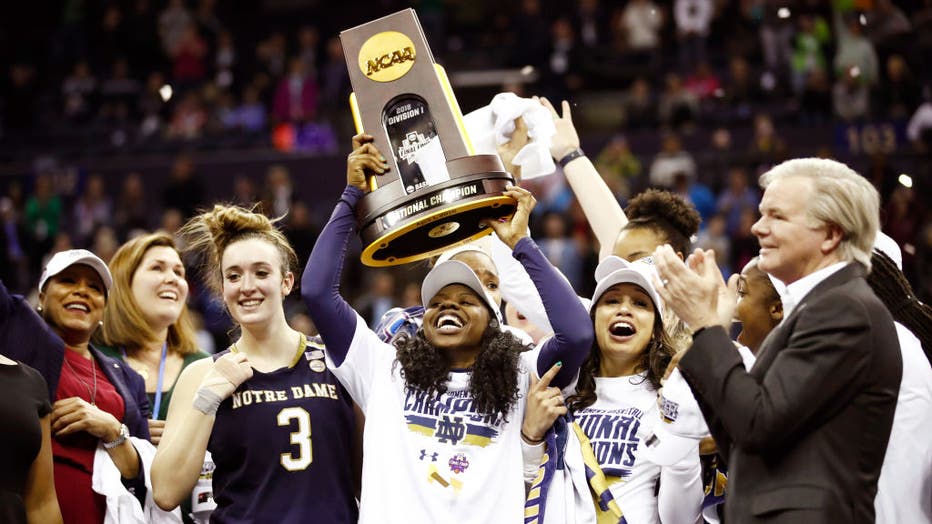Women’s basketball to get March Madness performance pay for the first time

NCAA, Power 5 agree to allow schools to pay players
The NCAA and its Power 5 conferences have agreed to allow schools to play former and current college athletes.
Women’s basketball has reached another milestone in its growing popularity and recognition. Starting this year, teams competing in the NCAA Tournament will be compensated through performance pay, similar to the system men’s basketball teams have benefited from for years.
The plan was unanimously approved Wednesday during the NCAA convention, the Associated Press reports, reflecting a broader push for gender equity in collegiate sports.
Why is this change significant?
The backstory:
The women’s basketball tournament has been a cornerstone of March Madness for over four decades but lacked the financial incentives tied to performance seen in the men’s tournament. Under the new plan, conferences will receive performance units for teams that make the tournament, with additional rewards for advancing through the rounds.
In its first year, the fund will allocate $15 million—26% of the women’s basketball media revenue deal. By 2028, this will grow to $25 million, or 41% of revenue, aligning with the historical percentages established for men’s basketball.
Courtney Banghart, North Carolina’s head coach and president of the Women’s Basketball Coaches Association, called it "a great day and a reward for the investment by athletic departments in women's basketball."

Arike Ogunbowale #24 of the Notre Dame Fighting Irish hoist the NCAA championship trophy after scoring the game winning basket to defeat the Mississippi State Lady Bulldogs in the championship game of the 2018 NCAA Women's Final Four at Nationwide Ar (Photo by Andy Lyons/Getty Images)
How does this impact women’s basketball?
By the numbers:
- $15 million will be distributed in 2025, based on this year’s tournament results.
- The fund will grow to $25 million annually by 2028.
- 26% of media revenue will initially fund performance units, rising to 41% by 2028.
Women’s basketball has seen historic growth in recent years. The 2024 title game, featuring South Carolina and Iowa, drew a record 18.7 million viewers, surpassing the men’s championship by nearly 3 million. Attendance records were also shattered during the tournament.
Julie Roe Lach, commissioner of the Horizon League, called the move a "huge step not just for women's basketball but women's sports in general toward the goal of gender equity."
What's next:
Women’s basketball is poised for further growth with increased investment from this fund. Conferences and schools will have flexibility in allocating their shares, whether reinvesting in basketball programs or supporting other sports.
As the tournament approaches, coaches and players alike are hopeful that this shift marks the start of greater equity and visibility for women’s collegiate sports.
The Source
This story is based on reporting by the Associated Press, NCAA statements, and historical data on collegiate athletics.

